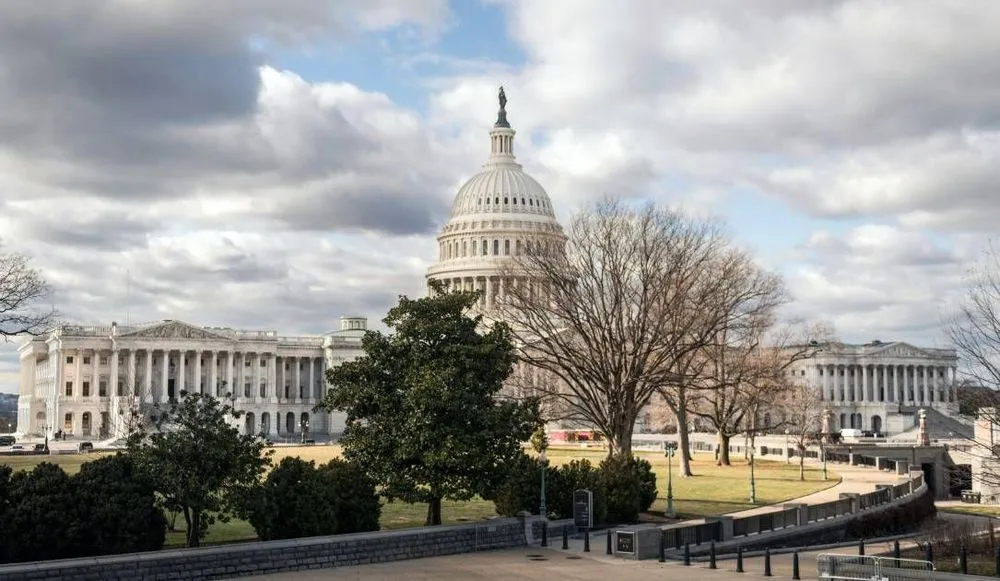House committee marks up long sought kids’ privacy and online safety bills
The House Energy and Commerce Committee on Wednesday voted to mark up two landmark children’s online safety and privacy bills, sending the legislation to House leaders for a potential floor vote and bringing the bills one step closer to becoming law.
The Senate, which merged the bills, approved the legislation in a 91-3 vote in July.
At Wednesday’s mark up hearing Committee Chair Cathy McMorris Rodgers (R-WA), who has long championed comprehensive federal privacy legislation without success, tearfully spoke about the dire need for the bills’ passage as she held up pictures of several children who have died by suicide or accidents tied to their exposure to social media content.
The bills, known as the Kids Online Safety Act (KOSA) and the Children and Teens’ Online Privacy Protection Act 2.0 (COPPA), have been pushed forward by a fierce lobbying campaign which has included several visits to Congress by parents of dead children.
Both bills were amended Tuesday. The more controversial of the two, KOSA, was significantly amended and lost support from key legislators due to the changes.
The amended version was widely criticized even by legislators who voted to advance it out of committee. Others who had supported the bill voted against moving it forward due to the changes made Tuesday.
Rep. Anna Eshoo (D-CA) said the bill has been stripped of essential language tied to protecting kids from social media-induced anxiety, depression, eating disorders, substance abuse disorders and suicidal behaviors.
“None of that [specific language] is in the legislation and I think that that is a big hole — I think it's essentially a loophole that a Peterbilt truck can drive through,” Eshoo said, adding that she would not vote in favor of the amended bill.
Some legislators at Wednesday’s committee hearing pledged to strengthen the amended version of KOSA.. The amended bill will need to be reconciled with the stronger Senate version.
Civil liberties and digital freedoms organizations have staunchly opposed KOSA, saying it will censor important content children need, particularly in the LGBTQ+ community, and will violate users’ privacy by forcing companies to collect more data in order to comply with the laws’ age restrictions.
In a letter sent to McMorris Rodgers Tuesday, the American Civil Liberties Union lambasted KOSA, saying its so-called duty of care provision requiring social media platforms to do more to shield youth from harmful content will “stifle critical information about reproductive healthcare, sexual orientation, and gender identity.”
The civil liberties organization also said that the duty of care provision could be weaponized by abortion foes to claim that the pregnancy ending procedure causes emotional disturbance and serious bodily harm.
The provision contains language which would hold platforms liable if their content curation does not prevent “serious bodily harm, serious emotional disturbance, or death.” The legislation gives the Federal Trade Commission the power to hold platforms accountable if they violate it.
LGBTQ+ youth have also decried KOSA, writing in an open letter to the Congressional Progressive Caucus that “as young people whose existence is increasingly criminalized, [we are] asking you to stand up for us when no one else will.”
“KOSA puts our privacy, safety, and well-being at risk,” the letter said. ”Please defend our right to lifesaving information and community by opposing KOSA so it won’t cause more trans kids to literally die.”
However, McMorris Rodgers suggested such concerns are outweighed by what she sees as the damage being done to children who engage with social media.
“All of these children are no longer with us because of the dangers posed by the current state of social media and our online ecosystem,” she said as she waved large color photos of dead children she named one by one. “Unfortunately, these stories are not isolated incidents. There are thousands of stories just like these.”
Social media companies have fiercely opposed KOSA and, in some cases, appear to be trying to preempt changes to existing law.
Instagram said Tuesday that it will make several changes to its policies covering young users in an attempt to enhance their privacy and better protect them from harmful content.
The platform’s announcement came a day after the committee announced it would vote on whether to mark up KOSA.
COPPA 2.0, which was less significantly amended than KOSA and is less controversial, also was reported to the House floor Wednesday. The bill, which overhauls legislation originally passed more than 20 years ago, bans online companies from targeting advertising to children under age 17 and requires them to obtain their consent before collecting their data.
Critics have said COPPA 2.0 violates children and teens’ privacy by allowing their parents to access data websites have collected on their children as well as to delete it.
Suzanne Smalley
is a reporter covering digital privacy, surveillance technologies and cybersecurity policy for The Record. She was previously a cybersecurity reporter at CyberScoop. Earlier in her career Suzanne covered the Boston Police Department for the Boston Globe and two presidential campaign cycles for Newsweek. She lives in Washington with her husband and three children.



